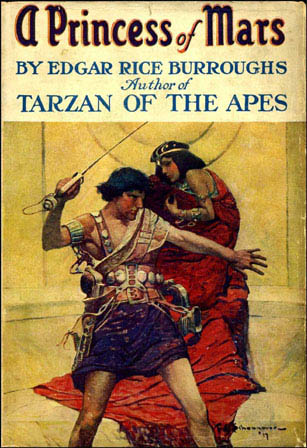 So, Eclipse Phase is kind of a weird game. Explaining it to people unfamiliar with the game commonly provokes one of two reactions:
So, Eclipse Phase is kind of a weird game. Explaining it to people unfamiliar with the game commonly provokes one of two reactions:
- The person's eyes light up with excitement, and they say something like, "Wow, cool!" Then they start asking questions about the world, the mechanics, or whatever weird train of thought hearing about it inspired.
- The person cocks their head, gets a funny look on their face, and says, "That's, uh, pretty effin' weird. Where did you get the idea for this?"
Well, people who have reaction number two, I'm weary of blaming my favorite sci-fi writers for our game's complex setting and unsettling themes. While they deserve a lot of credit, I decided to dig a bit deeper. So, for your amusement, I've questioned my fellow Eclipse Phase creators to produce this list of things that warped our little minds at an impressionable age, causing us to grow up to be writers, scientists, computer programmers, activists, and gasp game designers.
John Snead: Dr. Who. "The third doctor is almost entirely responsible for my fashion sense."
Lars Blumenstein: Captain Future, an anime series that aired on German Television in the early '80s.
Tobias Wolter: Tobias cited several influences, including Star Wars (his first action figure was a Tusken Raider), Das Schwarze Auge, Twin Peaks, and The Smurfs (which seems incongruous together with the other three... until you really start thinking about it, and then it gets pretty weird).
Me (Jack Graham): Allen Varney's weird-ass 1983 game Globbo. I played it the other night for the first time in about 20 years, and while there've been many bigger influences on my creative output, this one maps to EP in some bizarre and amusing ways.
Rob Boyle: Rob cited a bunch of novels, including Edgar Rice Burroughs' Mars and Venus books. He read all of them around fifth grade or something. He even made his own dustcovers for a class project (which he claims to still have somewhere; I'm totally going to make him dig them up next time I'm in Chicago). Also, Heinlein's The Number of the Beast. (Rob's comment on this one? "Fucked up on so many levels. I was way too young when I read this.")
So be careful what you let your children watch/play with/read.
They might grow up to be game designers.

 So, Eclipse Phase is kind of a weird game. Explaining it to people unfamiliar with the game commonly provokes one of two reactions:
So, Eclipse Phase is kind of a weird game. Explaining it to people unfamiliar with the game commonly provokes one of two reactions: